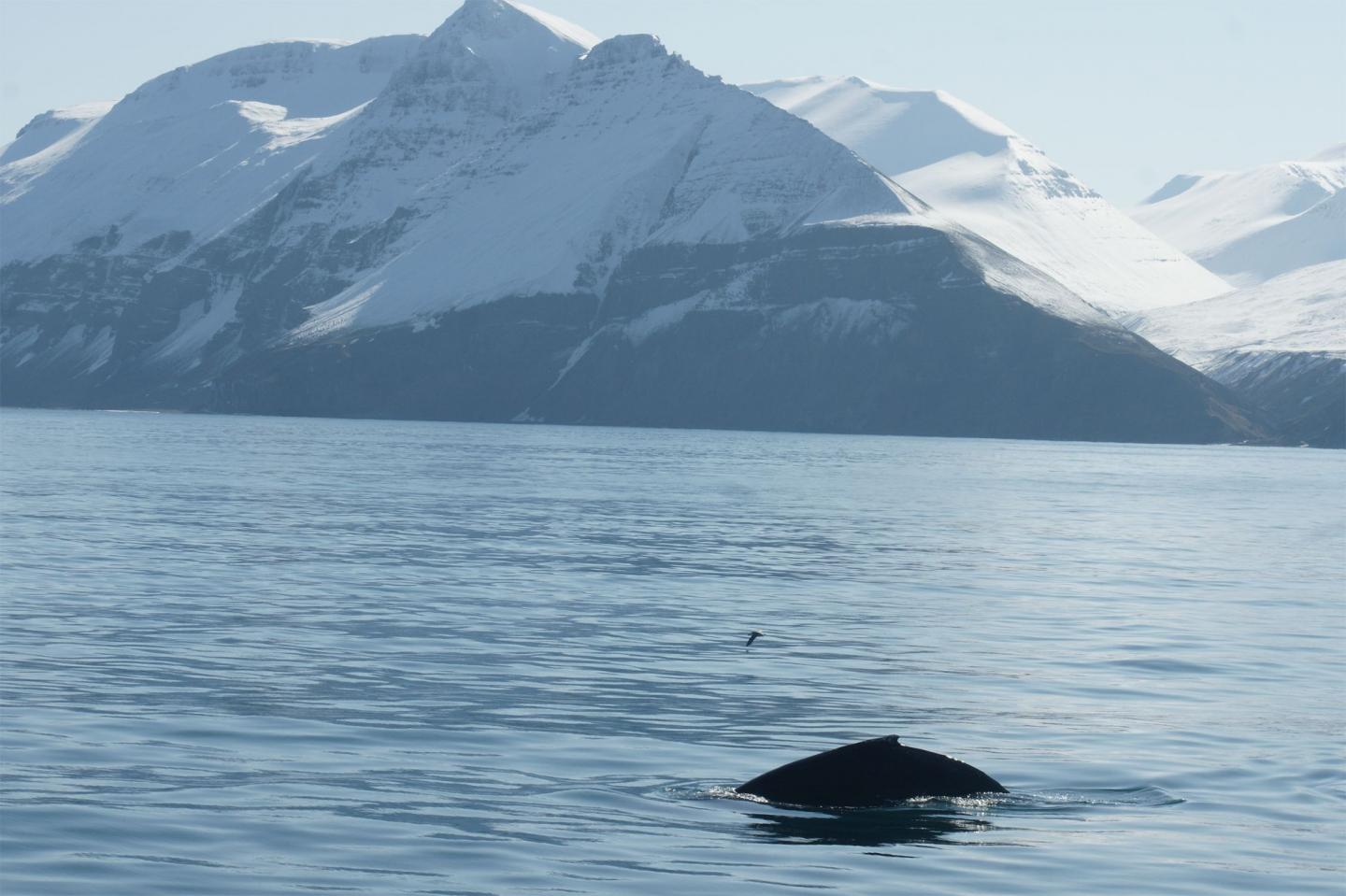And resemble tropical winter breeding-associated songs

Credit: The University of Iceland’s Research Center in Húsavík, 2019
Humpback whales overwintering in feeding areas may sing complex, progressive songs which closely resemble those associated with breeding grounds, according to a study published January 23, 2019 in the open-access journal PLOS ONE by Edda E. Magnúsdóttir and Rangyn Lim from the University of Iceland.
Humpback whales (Megaptera noveangliae) migrate annually between summer subarctic feeding areas to winter tropical breeding grounds, where males are known to sing characteristic songs which are linked to mating. However, recent studies indicate some humpback pods may overwinter in their feeding grounds rather than migrating, raising the question of whether and how males sing in these circumstances. The authors of the present study used acoustic recorders in the feeding grounds of Skjálfandi Bay in northeast Iceland between January and March of 2011, recording the songs of male humpback whales which were overwintering here. Whale songs were recorded on 42 of the 46 recording days, producing a total of 70 ten-minute song files used for analysis.
The authors identified 15 distinct phrases and themes within the whale songs. They noted that the songs they recorded may represent a characteristic song type with a sophisticated structure and order of themes – and closely resemble the songs associated with breeding grounds. Song themes also appeared to evolve gradually over the recording period, possibly indicating the existence of song exchange and cultural transmission in these feeding grounds.
The research suggests that humpback whale singing is a more flexible behavior than previously thought and can occur at overwintering feeding sites as well as traditional breeding grounds. The authors only used audio to record the presence of whales, and since female whales do not sing, the authors couldn’t infer if females also overwinter at this site. If they do, humpback whales might also be capable of more flexible and opportunistic mating than previously suspected.
The authors add: “New findings show that humpback whales sing their elaborate breeding songs on subarctic feeding grounds throughout the dark winter, an atypical behavior for this giant migrator which primarily sings and breeds in tropical waters during winter. We are likely witnessing a strategic response of these humpback whales to the rapidly changing arctic environment by extending their feeding period into the breeding period based on food availability.”
###
In your coverage please use this URL to provide access to the freely available article in PLOS ONE: http://journals.
Citation: Magnúsdóttir EE, Lim R (2019) Subarctic singers: Humpback whale (Megaptera novaeangliae) song structure and progression from an Icelandic feeding ground during winter. PLoS ONE 14(1): e0210057. https:/
Funding: This research was funded by the Doctoral Grants of The University of Iceland Research Fund (in Icelandic), 200913-Doktorsstyrkir Rannsóknasjóðs Háskóla Íslands to EEM; http://sjodir.
Competing Interests: The authors have declared that no competing interests exist.
Media Contact
Edda Elísabet Magnúsdóttir
[email protected]
Related Journal Article
http://dx.




